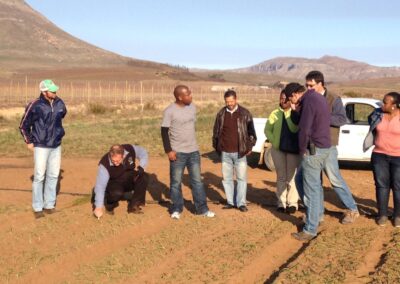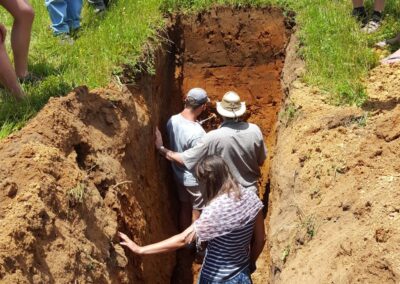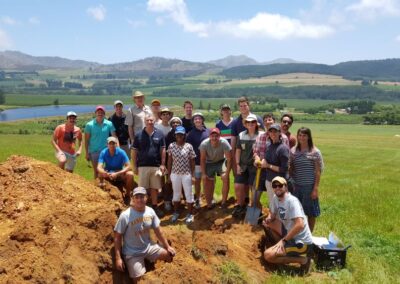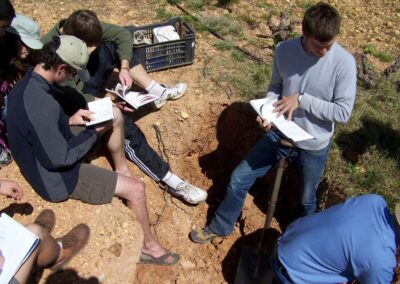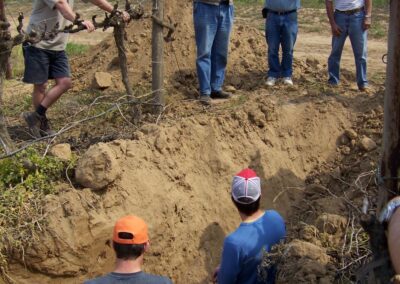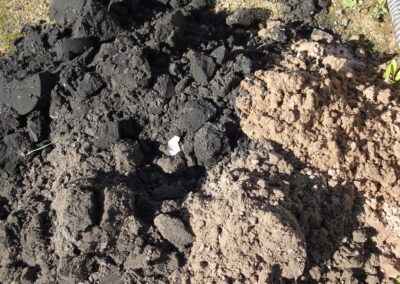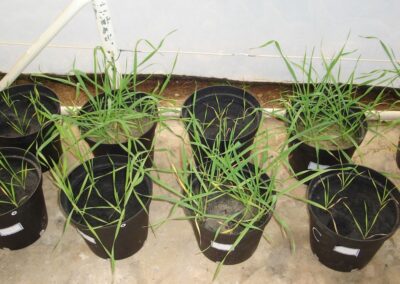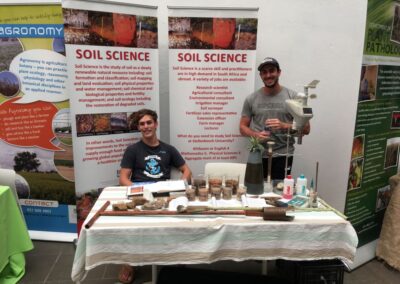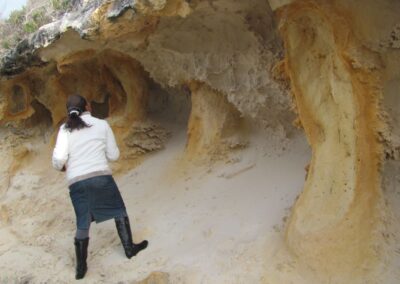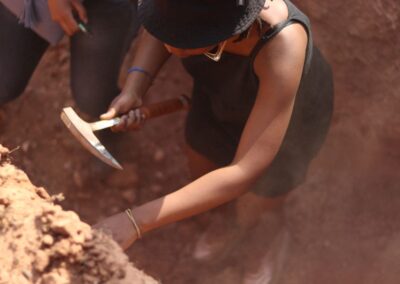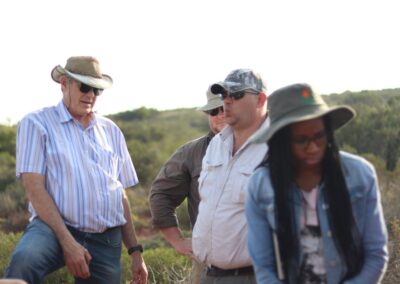AgriSciences
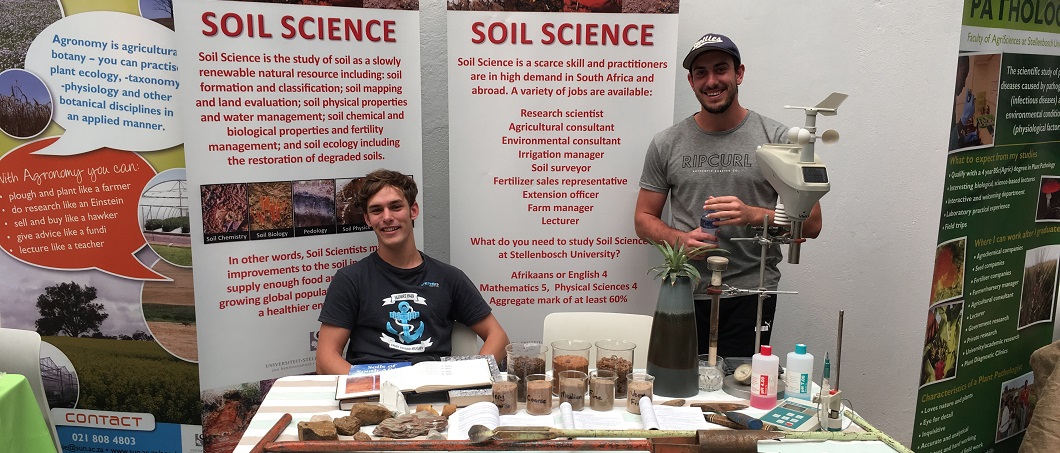
Soil is a medium for plant growth, a habitat for different species, a filtration system for surface water and maintenance of atmospheric gases. In short: soil is an extremely important natural resource. The Department of Soil Science focuses on the importance of soils as a very slowly renewable and essential natural resource. It involves the study of the properties and processes that occur in soils, as well as the sustainable use and management of soils. It is an indispensable field of study for sustainable food production in future.
Specialised fields in Soil Science are (a) Pedology, which includes the study of the origin, formation, classification and mapping of soil, (b) Soil Physics, which entails the physical properties, such as water retention and movement, water management and irrigation, as well as tillage and cultivation practices, (c) Soil Chemistry, which studies the chemical properties of soil, including plant nutrition, fertilisation and rehabilitation and (d) Soil Biology, which is about the interaction between soil organisms and the aforementioned specialised fields.

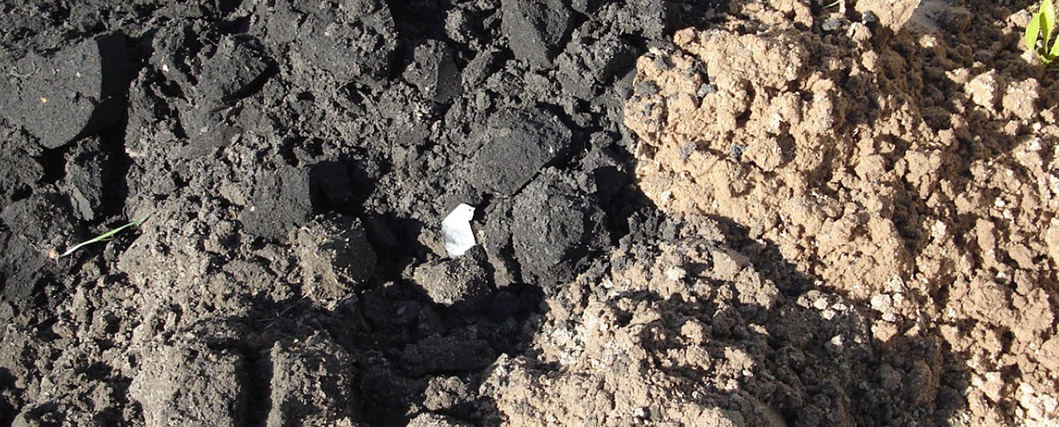
empty
empty tag
Will I only have Soil Science as a major subject when I register for a degree in Soil Science?
No, within the Plant And Soil Sciences programme you always have two majors. Along with Soil Science, you can choose between Agronomy; Chemistry; Horticulture or Grapevine Sciences (Viticulture) as your second major.
What are the admission requirements (i.e., school subjects and relevant grades) to register for a degree in Soil Science?
The admission requirements to register for the BScAgric programme in Plant and Soil Sciences are as follows:
With Agronomy, Horticulture or Grapevine Sciences as a second major:
- An average performance level of 60% in the NSC or the IEB’s school-leaving certificate (excluding Life Orientation), or other school qualifications;
- English or Afrikaans (Home Language or First Additional Language) – 4 (50%);
- Mathematics – 5 (60%); and
- Physical Sciences (Physics and Chemistry) – 4 (50%).
With Chemistry as a major subject:
- An average performance level of 60% in the NSC or the IEB’s school-leaving certificate (excluding Life Orientation), or other school qualifications;
- English or Afrikaans (Home Language or First Additional Language) – 4 (50%);
- Mathematics – 6 (70%); and
- Physical Sciences (Physics and Chemistry) – 4 (50%).
Please note that only a limited number of students can be accommodated and meeting the requirements, unfortunately, does not guarantee a place in the programme.
Can I study Soil Science if I only have Math Literacy?
No, unfortunately, you need pure Mathematics. You may, however, consider studying at the Elsenburg Agricultural College which is situated 10km outside Stellenbosch.
How many years does it take to complete a degree in Soil Science?
Four (4) years.
Are there good job opportunities for someone who holds a Soil Science degree?
Yes. Since you will graduate with two majors (soil sciences and a subject in a crop production field) you will have the edge on candidates that apply for job opportunities. Soil Scientists with Chemistry as their other major subject are also most sought after by chemical and fertilizer companies.
What kind of jobs are there as a Soil Scientist?
Soil Scientists can pursue (but are not limited too) the following careers:
- Work as a farm manager or technical consultant in Agronomic-, Fruit- or Grape industries;
- Do soil classification, mapping and suitability assessments;
- Do soil analyses and/or make fertilizer recommendations;
- Make soil preparation (tillage) recommendations for specific crop cultivations;
- Work in the irrigation industry;
- Researcher;
- Work on soil remediation (i.e. polluted and/or mining soils);
- Do development and training of small scale farmers in rural areas.

